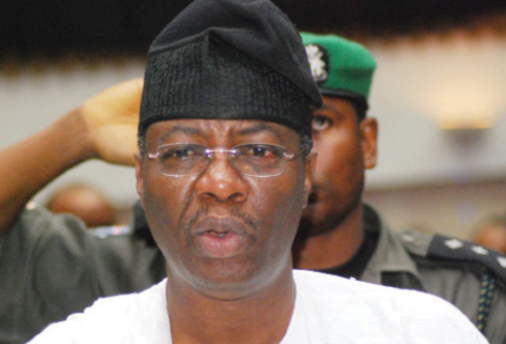Senator Gbenga Daniel, representing Ogun East, lauded President Bola Tinubu’s leadership, characterizing it as a conscious and courageous departure from the past. He emphasized Tinubu’s bold economic reforms, particularly the removal of fuel subsidies and the restructuring of monetary policies, as evidence of his commitment to redirecting the nation’s trajectory. Daniel argued that these actions, while potentially controversial, demonstrate a willingness to tackle long-standing issues and lay the foundation for a more stable and prosperous future. He unequivocally endorsed Tinubu’s re-election bid in 2027, asserting that it is crucial for the consolidation of these reforms and the continued progress of Nigeria.
Daniel also called upon state governors to leverage the increased revenue accruing to states and local governments as a result of the subsidy removal to improve the lives of their constituents. He urged them to demonstrate accountability and utilize these funds judiciously for the benefit of the people. This call to action underscores the importance of responsible governance and effective resource allocation at all levels of government, particularly in the wake of significant policy shifts. Daniel’s message emphasizes the interconnectedness of national and local governance in achieving sustainable development and improving the well-being of citizens.
Highlighting his own contributions to his constituency, Daniel unveiled a multimillion-naira ultramodern Renewed Hope International market in Igode, Sagamu Local Government Area. This initiative, alongside the launch of the BATOGD Movement, a group dedicated to supporting Tinubu’s re-election, further solidified his commitment to the President’s vision. He outlined his past efforts in providing grants to petty traders, facilitating free cataract surgeries, and distributing empowerment tools such as tractors, fertilizers, and motorcycles, emphasizing his ongoing commitment to the welfare of his constituents. The market project and the support group represent tangible expressions of his political alignment with Tinubu and his dedication to community development.
Daniel’s unveiling of the market project was coupled with a direct appeal to Ogun State Governor Dapo Abiodun to support the development of the road leading to the market. Recognizing the market’s potential to boost the local economy and connect Igode to neighboring areas, Daniel emphasized the importance of adequate infrastructure to fully optimize its benefits. He framed this request within the context of the increased allocations to states following the fuel subsidy removal, implicitly urging the Governor to prioritize infrastructure development and utilize the available resources effectively.
Looking ahead, Daniel advocated for the creation of Ijebu-Remo State, a cause he has championed in the Senate. He cautioned that this long-sought goal could face delays if not achieved before 2027, particularly if he is not re-elected. This appeal is strategically linked to his own political future, suggesting that his continued presence in the Senate is crucial for the realization of this state creation objective. He highlighted the procedural intricacies of the National Assembly, explaining that unfinished projects risk being restarted if not completed within a legislative term, further emphasizing the importance of continuity in political leadership to secure lasting change.
The inauguration of the market was met with praise from Oba Jamiu Sule-Onosipe, the traditional ruler of Igode, who acknowledged it as the first federal government presence in the community’s history. The Oba’s commendation underscored the significance of the project for the local community, highlighting its potential to stimulate economic growth and bring development to an underserved area. His endorsement of both Tinubu and Daniel serves as a testament to the perceived positive impact of their collaboration on the community. The Oba’s request for additional road construction to connect Igode with neighboring communities in Lagos State further emphasized the need for infrastructure development to unlock the region’s full economic potential. His remarks highlight the importance of government responsiveness to local needs and the potential for collaborative efforts to drive positive change in rural communities.


